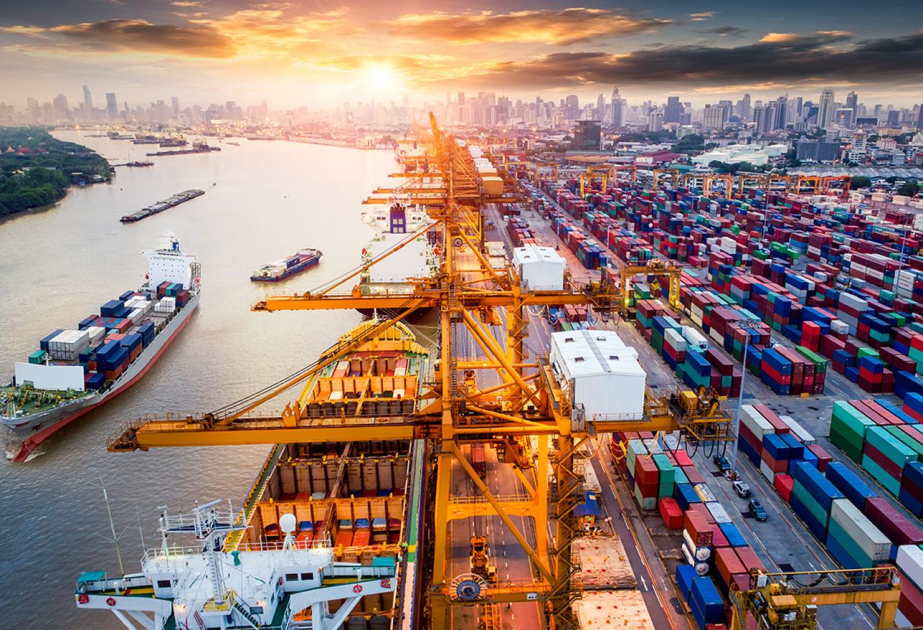Reforming global cooperation key to shared prosperity, UNCTAD16 hears

Baku, October 22, AZERTAC
Calls for reforming global cooperation took centre stage at the opening of the16th United Nations Conference on Trade and Development (UNCTAD16), as countries urged bold steps to rebuild trust in the global trading system and ensure that globalization works for everyone, not just the few, according to the official UNCTAD16 website.
Ministers and delegates meeting in Geneva underlined that the current multilateral system is under strain - beset by rising inequality, economic uncertainty and eroding confidence in shared rules. They agreed that reforming how countries cooperate on trade, investment and technology is essential to restoring predictability and delivering prosperity for all.
In September, UN Trade and Development (UNCTAD) reported that global trade expanded by about $500 billion in the first half of 2025, and is on track to surpass its 2024 record.
But at the same time, economic inequalities are widening, geopolitical tensions are rising, and developing countries are demanding a greater voice in shaping global trade rules.
Growth in the second quarter of this year was driven primarily by developing economies, supported by rising South–South trade. It further underscores the growing economic clout of countries in the Global South, many of which are no longer willing to have the rules of trade dictated to them.
UNCTAD Secretary General Rebeca Grynspan highlighted that we are in a period of transition where the old and the new worlds have converged.
A reformed multilateral system should maintain the ideals based on international cooperation.
“We need to understand that not all the old [system] has to die, and that many of the [original principles] need to be put into the new system” she said.
A system in need of renewal
Speakers at the dialogue agreed that the rules underpinning global trade – many written nearly 80 years ago – are no longer fit for purpose.
Ngozi Okonjo-Iweala, Director-General of the World Trade Organization (WTO), argued that while post-war institutions such as the UN, IMF, and GATT (the forerunner to the WTO) helped secure peace through interdependence, today’s realities demand a new approach.
“We don’t want your grandmothers’ multilateral system, because so much has changed [in the last 80 years]” she said.
“Developing countries are contributing more to global growth, and South-South trade has tripled from what it was in 1995.”
Ms. Okonjo-Iweala proposed a three-part agenda: Preserve what works, reform what no longer does, and reposition for a digital and green future.
Increasing the role of trade’s stakeholders
Guy Parmelin, Federal Councillor of Switzerland and President of the UNCTAD16 conference, emphasized that inclusivity must go hand in hand with preserving the rule-based foundation of trade.
“We must assess what improvements can be made, whether there are overlaps and duplications, and how much space there is for other stakeholders, such as the private sector, to play a larger role,” he said.
Highlighting that private companies fund two thirds of research in Switzerland, he argued for stronger public–private collaboration to drive innovation in trade.
Towards an equitable and sustainable future
The discussion revealed a rare consensus: The multilateral system must evolve – not be discarded.
As power dynamics shift and technology reshapes markets, the challenge is to maintain cooperation while ensuring that developing economies are not left behind.
The question is not whether multilateralism survives, but whether it can evolve to serve everyone – fairly, inclusively, and sustainably – in the century ahead.
The leaders dialogue featured a high-level panel that also included:
Arnoldo André Tinoco, Minister of Foreign Affairs and Worship, Costa Rica
Kamina Johnson Smith, Minister of Foreign Affairs and Foreign Trade, Jamaica
Ahmed Kouchouk, Minister of Finance, Egypt



















